
Feedback:
We strive to continually improve our course. We would be very grateful if you could take a few minutes to complete our Online feedback form.
| Online feedback form |
The simpleeducation.co website provides a huge resource of key course material, your attendance certificate, live case demonstrations, information on the latest studies and clinical trials. All of this will be housed within your own customised educational passport.
Finally, on behalf of the entire faculty team, we would like to thank you for taking the time to attend the course. We hope you found the course informative and stimulating, leaving you prepared to implement the latest contemporary intracoronary guidance techniques in your catheter laboratory.
COURSE AGENDA
| 10.00-10.10 | Welcome and introductions Justin Davies, Javier Escaned |
| 10.10-10.30 | News update physiology, imaging, and Co-Reg (Going around the table highlighting a paper of interest) Round table discussion Justin Davies, Andrew Sharp, Rasha Al-Lamee, Carlo Di Mario |
| 10.30-11.30 | Live case demonstration (iFR Co-reg) Live case transmission from Hospital Clinico San Carlos, Madrid Operators: Javier Escaned, Nieves Gonzalo Discussant: Carlo Di Mario |
| 11.30-12.00 | How to make good coronary physiology measurements Presentation wall Andrew Sharp |
| 12.00-13.00 | Coronary physiology case review (Interactive voting for each case) Round table discussion Ravinay Bhindi, Rasha Al-Lamee, Waldemar Bojara |
| 13.00-14.00 | Break |
| 14.00-15.00 | Case in-a-box demonstration (IVUS) Case in-a-box demonstration from Hospital Clinico San Carlos, Madrid Javier Escaned Discussant: Carlo Di Mario |
| 15.00-15.30 | How to make good IVUS measurements Presentation wall Rasha Al-Lamee |
| 15.30-16.30 | IVUS case review (Interactive voting for each case) Round table discussion Michael Haude, Habib Samady, Andrew Sharp |
| 16.30-17.00 | Engineering challenges to making a pressure wire - better! Presentation wall Mark Richardson |
| 17:00 | Close of play |
| 10.00-10.10 | Introduction Justin Davies, Javier Escaned |
| 10.10-10.30 | iFR - when to do? Round table discussion Justin Davies, Andrew Sharp, Sukhjinder Nijjer, Javier Escaned |
| 10.30-11.00 | NHPR - is everything equal? Presentation wall Javier Escaned |
| 11.00-11.30 | How to make good Co-Reg measurements Presentation wall Andrew Sharp |
| 11.30-12.30 | Co-Registration: Cases in a box from Japan and Korea Round table discussion Bon-Kwon Koo, Hitoshi Matsuo |
| 12.30-13.00 | What's the real benefit of coronary physiology? Presentation wall Carlo Di Mario |
| 13.00-14.00 | Break |
| 14.00-15.00 | Co-registration, when is it useful? Case examples Round table discussion Ajay Kirtane, Sukhjinder Nijjer, Javier Escaned |
| 15.00-15.30 | Assessment of functional results of coronary revascularisation Presentation wall Allen Jeremias |
| 15.30-15.45 | The clinical interpretation of the DEFINE FLOW study Presentation wall Jan Piek |
| 15.45-16.30 | Good epicardial revascularisation is all that counts to restore normal coronary blood flow Presentation wall debate For: James Spratt Against: Justin Davies |
| 16.30 | Close of play |
Dr Justin Davies is a consultant interventional cardiologist at Hammersmith Hospital, Imperial College NHS Trust, London. After training at Imperial College, he won a prestigious BHF research fellowship to study arterial haemodynamics. Since then he has continued to work on the development of mathematical algorithms to aid understanding of large artery physiology and to develop new tools to assess arterial disease. The holder of several patents, he has published widely in the field of hypertension, coronary and large artery physiology and is the winner of many national and international awards. He has several international collaborations, and is the developer of iFR and the co-principal investigator of the ADVISE studies, the DEFINE-FLAIR, ORBITA and DEFINE-PCI studies. Justin also has an interest in renal denervation, and has lead the first-in-man studies to evaluate the safety of this technique to patients with chronic systolic heart failure (REACH studies).
Prof Carlo Di Mario is currently Professor of Cardiology, University of Florence and Director of the Structural Interventional Cardiology Division of the University Hospital Careggi, Florence, Italy. Previous posts included 15 years as Professor of Clinical Cardiology at Imperial College of Sciences, Medicine & Technology, London and Consultant Cardiologist at the Royal Brompton Hospital. He also practiced at the San Raffaele Hospital, Milan, Italy. He trained in Cardiology at the University of Padova, Italy, but he soon moved for a more in-depth interventional trying at the Thoraxcentre of Rotterdam, the Netherlands, where he also completed a PhD in Intracoronary Ultrasound Imaging and Doppler. He maintains an active clinical involvement performing more than 200 PCI per year in the last 15 years in London with the special interest in the treatment of chronic total occlusions, bifurcations, calcified lesions and diffuse disease. He is a regular TAVI operator and certified implanter for the Medtronic Evolute R and Edwards Sapien 3 transcatheter aortic valves. He participated in more than 260 MitraClip implantations in London and in the last few months back in Italy has also started transcatheter mitral treatments with clips, valves and direct annuloplasty. Professor Di Mario pioneered the use of intracoronary Doppler, pressure measurement, ultrasound and optical coherence tomography. These techniques have become the gold standard for physiological assessment of lesion severity and have revolutionised the technique of stent implantation with the use of high pressure dilatation which led to the universal application of this method in interventional cardiology. He is now applying these intravascular techniques for the guidance of implantation of fully bioabsorbable stents and optimal stent apposition across bifurcations and in complex lesions. He has led or participated in studies and trials to improve the technical success of recanalisation of chronic total occlusion and demonstrate its clinical usefulness. He cooperated with Dr Davies to the validation of iFR to assess lesion severity and discriminate the contribution of individual lesions, and with Dr Lyon in the intracoronary delivery of SERCA-2 genes via adenoviral vectors in the CUPID2 trial. He was Principal Investigator of the CARESS in AMI trial, a large multicentre trial showing that patients who receive fibrinolytic therapy for ST-elevation myocardial infarction benefit from early angioplasty. This trial and a subsequent meta-analysis have led to a change in the European Society of Cardiology and AHA/ACC Guidelines for treatment of STEMI patients. He is the PI and main recruiter of the Disrupt-CAD study with coronary lithotripsy delivered via dedicated balloons, due to be reported at ACC March 2017.
Prof Andrew Sharp qualified from Edinburgh Medical School in 1998. He was appointed as a Consultant Cardiologist at the Royal Devon and Exeter Hospital in 2011 and Honorary Associate Professor by the University of Exeter in 2018 before moving to the University Hospital of Wales in the summer of 2019.
Dr Rasha Al-Lamee is an Interventional Cardiology Consultant at Imperial College Healthcare NHS Trust in London, UK. Dr Al-Lamee’s research interests are complex coronary intervention, coronary physiology and invasive intravascular assessment. She designed, conducted and led the ORBITA trial and is the lead author of the primary publication in The Lancet. At Imperial College, she is actively involved in the development and recruitment for a number of multi-centre clinical trials. Dr Al-Lamee has over 40 peer-reviewed publications and has presented at international Cardiology conferences worldwide throughout her clinical career. She studied at the University of Oxford and University College London. She went onto complete her training as a junior doctor on the Barts and the London Medical rotation before being appointed as a Specialist Registrar on the North West London Cardiology rotation in 2006. Dr Al-Lamee has twelve years of Cardiology experience and completed three years of Interventional Fellowship training at Hammersmith Hospital in London. She also spent a year training as an Interventional Fellow under the supervision of Professor Antonio Colombo in Milan. She completed specialist training in Cardiology in 2013.
Professor Ravinay Bhindi is a consultant and Interventional Cardiologist on the North Shore Hospital Campus. He has expertise in complex coronary intervention and structural heart disease including percutaneous valve therapies. He is Head of Clinical Trials and the Structural Heart disease at North Shore Private and Royal North Shore Hospitals. In addition to an active clinical role, he maintains active research programs and has over 100 publications in peer reviewed journals. Professor Bhindi completed his MBBS and PhD at the University of Sydney before undertaking further interventional cardiology training and postdoctoral fellowship at the John Radcliffe hospital/ University of Oxford.
Dr Waldemar Bojara is Head of the Department of Clinical and Interventional Cardiology at the Gemeinschaftsklinikum Mittelrhein, Kemperhof. He has led the developement of the department of interventional cardiology at the Gemeinschaftsklinikum Mittelrhein, Kemperhof. Dr. Bojara completed his medical education at Bergmannsheil Bochum, University Hospital in Germany. He continued his training in internal medicine and than interventional cardiology at the same institution, was responsible for the cathlabs and established the coronary physiology program as well as the TAVI program. He has a strong interest in coronary physiology since more than 25 years, in particular coronary pressure measurements, flow measurements, intracoronary ultrasound and interventional cardiology including the use of left ventricular assist devices (Impella pump and synchronized extracorporal mechanical circulatory support) for protected PCI- and cardiogenic shock patients.
Prof Michael Haude is an interventional cardiologist at Municipal clinics Neuss, Lukas hospital GmbH, Neuss, Germany to optimise PCI and has been engaged in IVUS training for cathlab staff and cardiology trainees. |
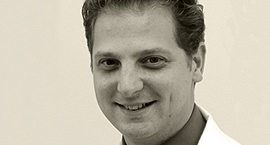 Dr Allen Jeremias is the Director of Interventional Cardiology Research and Associate Director of the Cardiac Catheterization Laboratory at St. Francis Hospital, Roslyn, NY. He is also a member of the Cardiovascular Research Foundation, New York, NY where he currently serves as the Director of the Physiology Core Laboratory. He completed his Medical training at The Cleveland Clinic Foundation, Stanford University School of Medicine, as well as Beth Israel Deaconess Medical Center, Harvard Medical School. Dr. Jeremias has numerous publications in the area of coronary physiology and intravascular imaging. Dr Allen Jeremias is the Director of Interventional Cardiology Research and Associate Director of the Cardiac Catheterization Laboratory at St. Francis Hospital, Roslyn, NY. He is also a member of the Cardiovascular Research Foundation, New York, NY where he currently serves as the Director of the Physiology Core Laboratory. He completed his Medical training at The Cleveland Clinic Foundation, Stanford University School of Medicine, as well as Beth Israel Deaconess Medical Center, Harvard Medical School. Dr. Jeremias has numerous publications in the area of coronary physiology and intravascular imaging. |
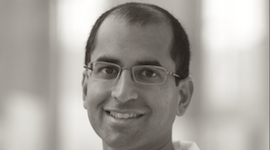 Prof Ajay J. Kirtane, MD, SM, is Associate Professor of Medicine at Columbia University Medical Center (CUMC) and Director of the Cardiac Catheterization Laboratories at New York Presbyterian (NYP) Hospital / CUMC. Dr. Kirtane is a graduate of Princeton University and Columbia University College of Physicians and Surgeons, and completed his residency/chief residency in Internal Medicine at the University of California, San Francisco. He completed fellowships in Cardiovascular Disease and Coronary and Peripheral Vascular Intervention at Beth Israel Deaconess Medical Center / Harvard Medical School and has a Masters of Science in Clinical Epidemiology from the Harvard School of Public Health. Prof Ajay J. Kirtane, MD, SM, is Associate Professor of Medicine at Columbia University Medical Center (CUMC) and Director of the Cardiac Catheterization Laboratories at New York Presbyterian (NYP) Hospital / CUMC. Dr. Kirtane is a graduate of Princeton University and Columbia University College of Physicians and Surgeons, and completed his residency/chief residency in Internal Medicine at the University of California, San Francisco. He completed fellowships in Cardiovascular Disease and Coronary and Peripheral Vascular Intervention at Beth Israel Deaconess Medical Center / Harvard Medical School and has a Masters of Science in Clinical Epidemiology from the Harvard School of Public Health. |
 Prof Bon-kwon Koo is a professor of Seoul National University, director of cardiovascular center and chair in Cardiology Division of Seoul National University Hospital, Seoul, Korea. Dr. Koo graduated Yonsei University, Seoul, Korea and was a visiting scholar at Stanford University previously and worked with Professor Peter J Fitzgerald and Professor William Fearon. Dr. Koo is an interventional cardiologist and his main research interest is imaging and physiology of coronary artery disease. Dr. Koo is a principal investigator of many domestic and international studies. He has published more than 400 papers in major journals. He was a course director of TCT-AP and is a course co-director of ENCORE course. He has performed series of studies on bifurcation lesions and coronary physiology/imaging which provided important insights in this field. His recent researches on non-invasive hemodynamic assessment using coronary CT angiography and computational fluid dynamics enables the assessment of FFR without invasive procedures and has started a new chapter in the diagnosis of coronary artery disease. This innovation has now been expanded to non-invasive treatment planner and non-invasive assessment for the risk of ACS. Prof Bon-kwon Koo is a professor of Seoul National University, director of cardiovascular center and chair in Cardiology Division of Seoul National University Hospital, Seoul, Korea. Dr. Koo graduated Yonsei University, Seoul, Korea and was a visiting scholar at Stanford University previously and worked with Professor Peter J Fitzgerald and Professor William Fearon. Dr. Koo is an interventional cardiologist and his main research interest is imaging and physiology of coronary artery disease. Dr. Koo is a principal investigator of many domestic and international studies. He has published more than 400 papers in major journals. He was a course director of TCT-AP and is a course co-director of ENCORE course. He has performed series of studies on bifurcation lesions and coronary physiology/imaging which provided important insights in this field. His recent researches on non-invasive hemodynamic assessment using coronary CT angiography and computational fluid dynamics enables the assessment of FFR without invasive procedures and has started a new chapter in the diagnosis of coronary artery disease. This innovation has now been expanded to non-invasive treatment planner and non-invasive assessment for the risk of ACS. |
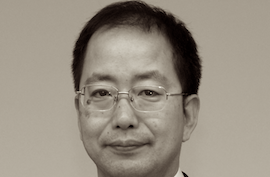 Prof Hitoshi Matsuo is currently President of Gifu Heart Center,
and Clinical Visiting Professor of Medicine in Gifu University School
of Medicine. He graduated from Jichi Medical School in 1986 and completed his residency in Gifu Prefectural Gifu Hospital. In 1987, during his residency period, Prof Hitoshi Matsuo spent one year at Johns Hopkins Medical Institutions in Baltimore as a research fellow in the Nuclear Medicine Department under the supervision of Professor Henry N Wagner Jr. From 1988, he returned to Gifu Prefectural Hospital where he dedicated clinical research work on physiology and interventional cardiology using nuclear medicine and pressure wires. Prof Hitoshi Matsuo is currently President of Gifu Heart Center,
and Clinical Visiting Professor of Medicine in Gifu University School
of Medicine. He graduated from Jichi Medical School in 1986 and completed his residency in Gifu Prefectural Gifu Hospital. In 1987, during his residency period, Prof Hitoshi Matsuo spent one year at Johns Hopkins Medical Institutions in Baltimore as a research fellow in the Nuclear Medicine Department under the supervision of Professor Henry N Wagner Jr. From 1988, he returned to Gifu Prefectural Hospital where he dedicated clinical research work on physiology and interventional cardiology using nuclear medicine and pressure wires. He received an annual award of Japanese Society of Nuclear Medicine in 1995 and the Clinical Research Award of Japanese Society of Interventional Cardiology in 2004. Thereafter, he moved to Toyohashi Heart Center as co-director of the catheterization laboratory from 2007 and returned to Gifu as the Director of Cardiovascular Medicine in 2009. Dr Matsuo now participates and contributes to many international multi-center trials including DEFINE-FLAIR, the international multicenter FFRCT registry (ADVANCE registry), 3V-FFR FRIENDS study and FAVOR2 in both Europe and Japan. |
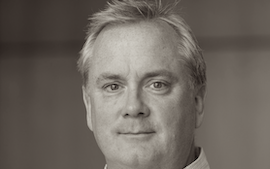 Mark Richardson is a R&D Director with Philips Image Guided Therapy Devices
in San Diego, CA. He is a Mechanical Engineer with 30 years experience in the medical device field, specializing in coronary guide wire design and manufacturing. His work for the past 11 years at Philips has concentrated on leading a R&D team in developing physiology guide wires, primarily coronary pressure guide wires. Mark Richardson is a R&D Director with Philips Image Guided Therapy Devices
in San Diego, CA. He is a Mechanical Engineer with 30 years experience in the medical device field, specializing in coronary guide wire design and manufacturing. His work for the past 11 years at Philips has concentrated on leading a R&D team in developing physiology guide wires, primarily coronary pressure guide wires. |
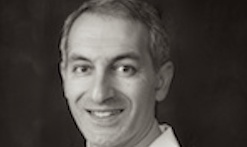 Prof Habib Samady trained in general cardiology, nuclear cardiology and interventional cardiology at Yale University. He joined Emory University in 2005. In 2009, he became Professor of Medicine and in 2011, Director of Interventional Cardiology at Emory University. He has received several outstanding teaching awards. Dr. Samady has an actively funded clinical and translational research program to investigate: Prof Habib Samady trained in general cardiology, nuclear cardiology and interventional cardiology at Yale University. He joined Emory University in 2005. In 2009, he became Professor of Medicine and in 2011, Director of Interventional Cardiology at Emory University. He has received several outstanding teaching awards. Dr. Samady has an actively funded clinical and translational research program to investigate: - Hemodynamic mechanisms associated with progression of human coronary atherosclerosis - Evaluation of pharmaceutical agents for treatment of coronary microvascular disease, endothelial dysfunction, coronary vasospasm and non obstructive atherosclerosis - Biomechanics of permanent and Bioresorbable coronary vascular devices Dr. Samady is Deputy Editor of JACC Cardiovascular Interventions, is on the editorial board of numerous cardiovascular journals, and is extensively published. |
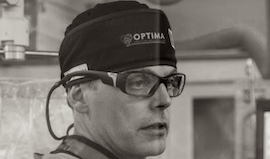 Dr James Spratt is an experienced interventional cardiologist in St Georges Hospital, UK. He has a particular interest in CTO education and the integration of new technology. Dr James Spratt is an experienced interventional cardiologist in St Georges Hospital, UK. He has a particular interest in CTO education and the integration of new technology. |
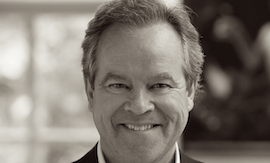 Prof Jan Piek is a clinical academic and interventional cardiologist at the Amsterdam University Medical Centers at the University of Amsterdam. Prof Jan Piek is a clinical academic and interventional cardiologist at the Amsterdam University Medical Centers at the University of Amsterdam.At the moment, he has a full-time position as a professor of clinical cardiology at the AMC Heart Center in Amsterdam. His particular interest is interventional cardiology in which field he has been active for almost 30 years. In his academic position, he has supervised approximately 55 PhD students on the theme diagnosis and treatment of coronary artery disease. The topic of his research work focusses on translational aspects of coronary atherosclerosis. This started in the area of arteriogenesis after the completion of his thesis in 1992 followed by a close collaboration with the research group of Prof. Wolfgang Schaper from Bad Nauheim in Germany. In the same period, he started pioneering with the company Cardiometris, Mountain View, Ca, USA, that finally led the development of guidewires, equipped with pressure and Doppler sensors, as a technical refinement for guidance of coronary interventions. Moreover, subsequent studies performed on reperfusion injury with dedicated centers in the US and Germany, provided novel insights into the inflammatory response following acute myocardial infarction. His pioneering work on coronary hemodynamics led to creation of an international network of specialized centers. The DEFINE FLOW study involves a collaboration between Texas Heart Institute and the Amsterdam University Medical Center on combined pressure and flow measurements and was conducted in 12 sites worldwide. The last three years, he has worked as the editor in chief of the Netherlands Heart Journal. |
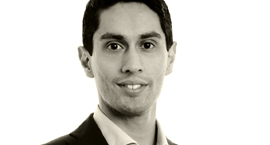 Dr Sukhjinder Nijjer is a Consultant Cardiologist and Senior Clinical Lecturer at Imperial College London. He works at both the Hammersmith Hospital and Chelsea & Westminster Foundation NHS Trust, as well as leading private Hospitals in London including the Wellington and Cromwell Hospitals. He is the President-elect of the Cardiology Section of the Royal Society of Medicine, and he was selected as an Emerging Leader for the British Cardiovascular Society. He specialises in coronary intervention and focused his clinical practice in the management of ischaemic heart disease. His practice encompasses all aspects of cardiology. In his PhD research, funded by the Medical Research Council (UK) and awarded by Imperial College he developed of new intracoronary physiology techniques, specifically iFR and iFR-pullback and Co-registration. He has published almost 100 peer-reviewed papers in respected journals, including the New England Journal of Medicine and The Lancet. He has also written several books. Dr Sukhjinder Nijjer is a Consultant Cardiologist and Senior Clinical Lecturer at Imperial College London. He works at both the Hammersmith Hospital and Chelsea & Westminster Foundation NHS Trust, as well as leading private Hospitals in London including the Wellington and Cromwell Hospitals. He is the President-elect of the Cardiology Section of the Royal Society of Medicine, and he was selected as an Emerging Leader for the British Cardiovascular Society. He specialises in coronary intervention and focused his clinical practice in the management of ischaemic heart disease. His practice encompasses all aspects of cardiology. In his PhD research, funded by the Medical Research Council (UK) and awarded by Imperial College he developed of new intracoronary physiology techniques, specifically iFR and iFR-pullback and Co-registration. He has published almost 100 peer-reviewed papers in respected journals, including the New England Journal of Medicine and The Lancet. He has also written several books. |

This essential guide is an educational activity intended for an international audience, specifically interventional cardiologists and cardiologists. However, other healthcare professionals involved in the care of coronary artery disease (CAD) patients will also find this topical.
Advances in Co-registration, Coronary Physiology & Intra Coronary Imaging e Course provides all you need to know to understand the basics of coronary physiology and imaging and how to implement both using co-registration into the cardiac catheter laboratory.